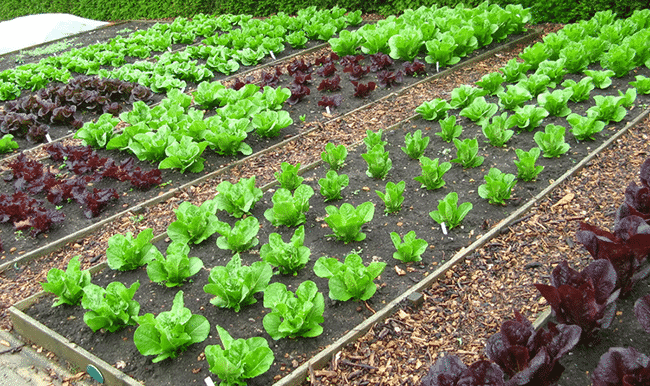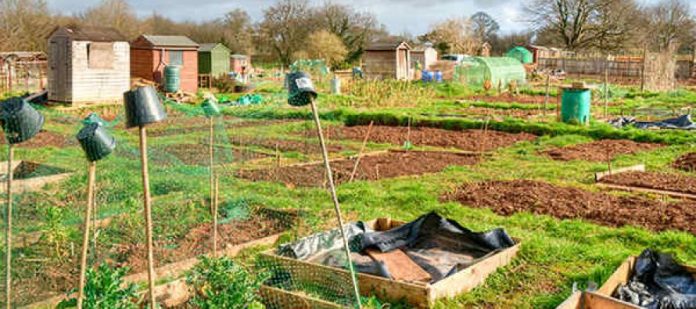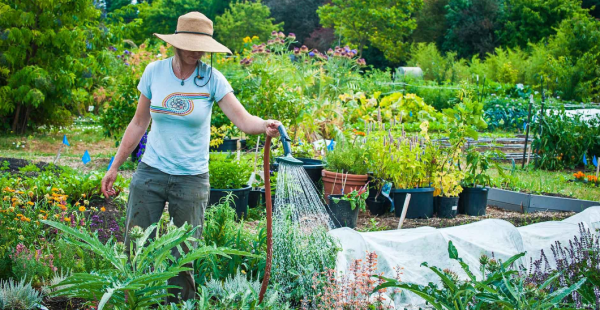Organic gardening is a method of growing plants or vegetables that you could describe as “Earth-friendly.”
To be entirely Earth-friendly, however, isn’t really possible. You are interfering with nature by gardening with any method, but the goal of organic gardening is relatively simple.
You should aim to feed the soil to ensure that it remains a healthy environment for your plants to grow. This means using natural fertilizer and avoiding chemicals.
The soil is ultimately the most important part because, without it, nothing grows. It’s also about looking for a natural solution to every problem.
Stay away from chemical solutions to deal with pests or weeds unless you absolutely have to resort to them.
It may all seem like more work and effort, to begin with, but the organic route isn’t necessarily the harder route, especially if you know what you’re doing.
If it sounds like the method for you, then that’s great. But there are certain things that you need to think about before committing.
Like anything else, there are myths about the process that you might actually believe right now. Here are five of those myths about organic gardening that you should get out of your mind:
It’s More Expensive
It makes sense why people would think that organic gardening costs more. Organic produce, in general, is definitely more expensive.
When you buy it from a local gardening center or a grocer, you will be paying more, and that’s where this misconception probably comes from.
All that you really need to get yourself started with organic gardening is to buy seeds and mulch, and both of these things come pretty cheaply.
Also, because you are looking for natural solutions when you’re going the organic route, you can apply that to more than just the plants.
 Instead of buying expensive pots, you could just make your own from repurposed milk cartons or old containers.
Instead of buying expensive pots, you could just make your own from repurposed milk cartons or old containers.
And you can make your own bug spray too. Garlic and pepper are useful for that. For most things that you might assume require chemical solutions, there’s a DIY alternative.
Going fully organic means cutting down on costs significantly.
Related: 61 Fruits and Veggies You Can Grow in Buckets
It’s An Expert’s Game
Sometimes people will be put off from trying organic gardening because of the misconception that you need an entirely different skill set—a more advanced skill set than what’s necessary for more traditional gardening. But that’s not actually the case.
At the end of the day, it’s as simple as cutting out all the chemical products. All the actual skills you have to work on are pretty similar.
The thing that might be different about it is the fact there is going to be more to do. People get the impression that it’s more difficult because it takes longer.
But that’s just because you’re not just throwing a bunch of chemicals at your plants; you are actually putting in the work to care for them.
At the end of the day, it’s really no more difficult than any other style of gardening; there’s just a bit more to do. And that brings me to my next point.
You Must Water New Plants All The Time
One of the things that put people off of organic gardening is that they believe it is going to be a lot more work.
In some ways, it is but not necessarily for the reasons that people think. The extra work leans more toward the enjoyable side of gardening, like making homemade mulch and fertilizer and finding out how best to arrange your plants so that they can grow most efficiently.
This is the essence of gardening; the monotonous side is things like manually watering the plants.
And people tend to believe that you have to water your new plants every single day because the roots get damaged while you’re planting.
In fact, you will have the opposite effect. Roots that are damaged can take less water, meaning that if there is too much moisture, it will wear the roots down even more.
You don’t need to water until the soil starts to dry. A good plan would be to make sure that the soil is very wet when things are planted.
It will take a couple of days for this to dry out. You can test it by dipping your fingers into the soil, and if it’s drying out, then you can water it again.
So if this was one of the reasons why you thought organic gardening wasn’t going to be your thing, then you can scratch it off the list.
Related: Guerrilla Gardening for Survival
Wood Chips Are A Dangerous Mulch
Wood chips are very popular among organic gardeners as a source of mulch because it’s a cheap and relatively simple way of getting that particular job done.
However, there are people who believe that it should be avoided because it decreases the nitrogen count in the soil.
Without nitrogen, plants can’t make any proteins or amino acids, and their DNA won’t be able to form properly.
The plants will grow, but they’ll be stunted and more likely to not last. Nitrogen is also a major component of chlorophyll and is essential for growth.
The assumption is that the nitrogen present in the soil will be drawn away from the plants and into the wood chips to decompose them.
While it’s true that the wood will draw nitrogen from the soil, it does so at a much less dramatic rate than people realize.
These wood chips will only take microscopic amounts of nitrogen from the soil, and in the grand scheme of things, the nitrogen count that your plants require won’t be affected at all.
Pardon the pun, but although this myth is rooted in scientific truth, it’s nowhere near as big of a problem as people believe it to be.
Your Yield Is Reduced
A high-yielding crop is something that produces a large amount per square foot of the space in your garden.
Because most gardeners are operating from smaller gardens, they tend to look for high-yielding plants and vegetables to maximize the space.
The assumption is that synthetic pesticide and fertilizer is necessary for a high yield because organic pest control and fertilization do not have the scope of the synthetic alternative.
But this assumption isn’t based on small-scale gardening. It’s based on the idea that organic gardening wouldn’t be sufficient for mass-producing vegetables.
We’ve already argued for the organic solutions to these issues, but they can’t really be used for large, expansive farms.
So if you were trying organic farming on a big farm, then you would indeed have a lower yield, but that doesn’t mean that your personal garden will.
It’s perfectly feasible to have grown high-yielding vegetables organically in a much smaller space. So this is another logical myth, but it’s also unfounded regarding small gardens.












